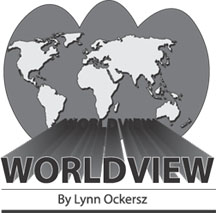|
observer |
|
|
|
|
|
OTHER LINKS |

|

|

|
Welcome thaw in US-Cuban relations
Decades-long, strained and antagonistic US-Cuba relations could finally be in the process of being defused. This is the equation that needs watching in the days ahead although a multiplicity of other issues are tending to capture the world news headlines at the moment. It would be premature to proclaim that the Fidel Castro era in Cuba's modern-day political history is coming to a close following the withdrawal of the charismatic Cuban leader from public life, close on the heels of ill-health, but the new man at the helm of the Cuban government, Raul Castro, could be said to be in the process of bringing a positive dimension to US-Cuba relations by calling for negotiations between the countries. Following this historic overture by Raul Castro, some 10 US lawmakers visited Cuba recently in an effort to finally break the decades - long ice which had formed in US-Cuban relations over the years and had stymied any forward movement towards improving ties between the countries. "We unanimously believe that the United States should respond positively to the proposal made by Raul Castro in his speech of December 2," a joint statement issued by the US lawmakers' delegation said at the end of the historic visit with reference to the overtures made by the man recently steering Cuban affairs. The statement went on to say that, "no one should be under the illusion that a negotiation with Cuba would be easy or that there will be results at all.... There may be other areas of opportunity. Only by probing Cuba's proposal is it possible to find out." Good startNo assessment, in this context, could be more balanced and sensible, but there is no denying that this is a good start to efforts to put the US' relations with Cuba on a positive, forward-thinking footing. With a Democrat-dominated US Congress and an emerging strong possibility of the US presidency going to the Democrats at the next poll, the prospects of improving US-Cuban ties seem brighter. Such prospects are greatly restricted under the present conservative, Republican administration in Washington but relations could change for the better under a more liberal Democratic presidency. The international media have focused on political liberalisation as the key issue which is separating the US and Cuba at present. Cuba, along with North Korea, are the only remaining communist states in the world system and have come in for hostile treatment by the West in the post - Cold War, post - Soviet era. Certainly, ideological differences are playing a key role in pitting the US against Cuba, particularly at a time when international relations are being perceived in stark black and white terms in some key Western capitals. However, there is more than meets the eye in current US-Cuban relations. States' political systems are inseparable from their internal economic structures and the ideologies which orient and shape the latter. This is a key area of contestation between Cuba and the US. Even Fidel Castro has come to accept economic globalisation as an undisputable fact of life but he has consistently argued in favour of an economic globalisation process which would be equitable and responsive to the needs of all, including, of course, the poor and the marginalized. In short, economic globalisation with a human face. Thus far, economic liberalisation and deregulation the world over has enriched only a few at the expense of the many. Fidel Castro has right along argued against this unjust trend and this policy on economic issues is unlikely to change under Raul Castro. Liberal viewHowever, what the US Congressional delegation's visit to Cuba seems to be indicating is that in US policy-planning and think-tank circles too, a more liberal view of economic globalisation seems to be taking hold, slowly but surely. The string of recent victories for the political Left in Central and Latin America could have been the "wake-up" call. Much to the dislike of the hawkishly conservative circles in Washington, Social Democracy seems to be making a strong comeback even in the US' own backyard. Essentially, the demand is for a more humane and equitable economic globalisation process and from this point of view socialist-oriented governments are being seen as more capable of delivering the goods. Hence the resurgence of the Left in Central and South America. Fortunately - at least in some US political and policy planning circles - the need to engage with Social Democracy seems to be emerging. Therefore, Cuba's call for negotiations cannot be met with a deaf ear in the US. |










